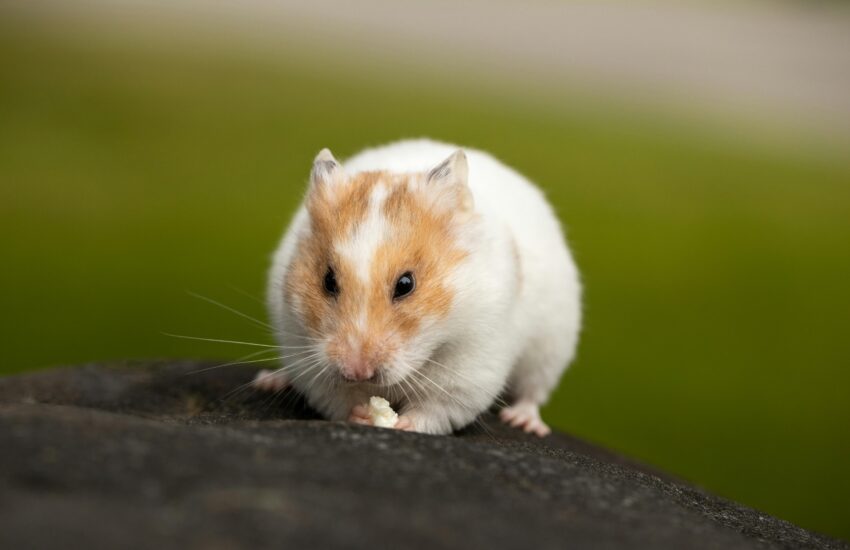Hamster Behavior Insights
Understanding hamster behavior is crucial for any hamster owner. These delightful little creatures exhibit a variety of interesting behaviors that are essential to their wellbeing and happiness. In this article, we will delve deep into the typical behaviors of hamsters, their social interactions, and what you can do to foster a healthy and stimulating environment for your pet.
Understanding Hamster Habits
Hamsters are known for their nocturnal nature, which means they are primarily active during the night. This behavior is rooted in their natural instincts, as they are prey animals in the wild. During the day, hamsters typically sleep, burrowing deeply into their bedding to feel safe and secure. Providing a cozy, dark space in their habitat can help create a comfortable environment for them to sleep during the day.
Why Do Hamsters Sleep During the Day?
Hamsters sleep during the day due to their instinctual behavior as prey animals. In the wild, being active at night helps them avoid predators. As a pet owner, it’s essential to respect this natural rhythm. If you want to interact with your hamster, consider doing so in the early evening when they are waking up and becoming more active. This respect for their natural habits not only fosters trust but also leads to more positive interactions with your pet.
Common Hamster Behaviors to Observe
There are several common behaviors that hamster owners frequently observe. Among these, chewing is a behavior that stands out. Chewing is vital for a hamster’s dental health since their teeth continuously grow. Providing chew toys made from wood or cardboard can help satisfy this need and keep their teeth trimmed while also preventing boredom. Additionally, you may notice your hamster hoarding food in their cheeks, a behavior vital for survival in the wild, ensuring they have access to food during times of scarcity.

The Importance of Social Interaction
While hamsters are often seen as solitary animals, they do exhibit interesting social behaviors. Understanding your hamster’s social needs can greatly enhance their quality of life. Hamsters can become bored or stressed if left alone for too long, particularly if they lack stimulating toys or activities. Engaging with them through play can encourage positive behavior and bonding.
Playtime: The Key to a Happy Hamster
Integrating playtime into your hamster’s routine can immensely benefit their mental stimulation. Activities like obstacle courses using tunnels and mazes can encourage exploratory behavior. Rotating toys and adding new items can keep your hamster intrigued and engaged. A simple, homemade maze utilizing cardboard tubes or boxes can provide hours of fun for both you and your hamster.
Recognizing Signs of Stress or Discomfort
It’s crucial to monitor your hamster for signs of stress or discomfort. Behaviors such as excessive grooming, biting the bars of their cage, or hiding continually can indicate that they are unhappy or stressed. To alleviate these issues, evaluate their habitat conditions and social interactions. Ensuring your hamster has plenty of enrichment can mitigate these symptoms and promote a more peaceful living environment.
Creating a Stimulating Environment
A stimulating environment plays a major role in fostering happy hamster behavior. Hamsters thrive in spaces that allow them to explore, burrow, and climb. Therefore, consider investing in a properly sized cage with multiple levels, tunnels, and hiding spaces. The more varied their environment, the more engaged they will be.
Best Practices for Cage Setup
When setting up your hamster’s cage, it is important to remember several best practices. First, ensure that the cage is well-ventilated and spacious enough for your hamster to roam freely. Adding bedding like aspen shavings or paper-based products can encourage burrowing behavior while providing comfort. Consider adding a wheel for exercise, which is crucial for your hamster’s physical health. Be sure to clean the cage regularly to maintain hygiene and prevent any unpleasant odors.

Feeding Habits: What to Watch For
Understanding your hamster’s feeding habits is another crucial part of their behavior. Hamsters are instinctively foragers, meaning they love to search for food. It’s essential to provide a balanced diet that includes high-quality pellets, fresh vegetables, and occasional treats like fruits or nuts. Monitor their eating habits — suddenly eating less can indicate stress or health issues, which may require a vet’s visit. Additionally, watching how they store food can be entertaining; you’ll often see them stuffing their cheeks full!
Key Takeaways
- Hamsters are nocturnal creatures that require a habitat reflecting their natural instincts.
- Offering social interaction and stimulating activities is vital for a happy hamster.
- A well-equipped cage with various enriching elements can greatly enhance your hamster’s quality of life.
FAQ
1. How often should I play with my hamster?
It is recommended to interact with your hamster daily, especially during their active periods in the evening. Short play sessions of about 15-30 minutes are ideal for maintaining their mental stimulation without overwhelming them.
2. What type of bedding is best for hamsters?
Aspen shavings, paper-based bedding, or pellets are excellent choices for your hamster’s cage. Avoid cedar or pine bedding, as the oils can be harmful to their respiratory systems. Always choose bedding that is absorbent and safe for your pet.
3. Why does my hamster chew on everything?
Chewing is a natural behavior for hamsters, essential for keeping their teeth healthy. Ensure you provide plenty of safe chew toys to satisfy this instinct and prevent them from chewing on cage bars or other items that could be harmful.
4. Can hamsters live together?
Some species of hamsters can live together, especially dwarf hamsters; however, most larger breeds are territorial and should be housed separately. If you’re considering keeping two hamsters together, monitor their interactions closely for aggressive behavior.
5. What should I do if my hamster is not eating?
If your hamster suddenly stops eating, it could indicate stress or a health issue. Evaluate their environment for stressors and consult with a veterinarian if the issue persists for more than a day or two.
